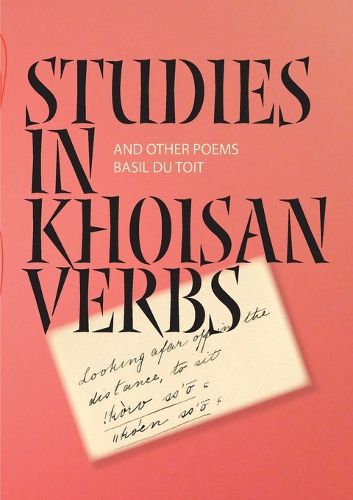Readings Newsletter
Become a Readings Member to make your shopping experience even easier.
Sign in or sign up for free!
You’re not far away from qualifying for FREE standard shipping within Australia
You’ve qualified for FREE standard shipping within Australia
The cart is loading…






This title is printed to order. This book may have been self-published. If so, we cannot guarantee the quality of the content. In the main most books will have gone through the editing process however some may not. We therefore suggest that you be aware of this before ordering this book. If in doubt check either the author or publisher’s details as we are unable to accept any returns unless they are faulty. Please contact us if you have any questions.
Du Toit draws on his childhood years in Botswana (the Bechuanaland Protectorate, as it was in those days) to examine questions of language identity and entitlement. He recalls confiding the secret of a magic trick to an itinerant Tswana man who in exchange taught him how to say a few words of the / Xam language; this proximity of language to the magical fashioning of reality still haunts him and has led to poems questioning our sense of belonging to social structures, sexual groupings and even to humanity itself.
Paradoxically, a diverse ethnic background (with Dutch, French, German and Scottish forebears) works against Du Toit's sense of being welcomed into any single national group. Two directions of trans-national entitlement remain open - movement into an inner landscape of spiritual and artistic values, and an allegiance to the planet as an ecologically neutral, valued and threatened space of dwelling. Both of these manifestations of "home" feature prominently in Du Toit's work. A visionary linguistics binds these worlds together - foregrounding of the inner life as a source of values and home encourages a Kantian vision of a natural world created by the necessary structures of human consciousness, language being the force and locus of this creation. Du Toit's longed-for release from paid employment in 2011 allowed him to spend his mornings in Edinburgh University's Main Library; there, over the next ten years, basing himself on the Third Floor of the library (where the University's literature collections are housed), he composed a large body of poems, mainly free-verse sonnets, from which the poems of "Studies in Khoisan Verbs" are drawn.
$9.00 standard shipping within Australia
FREE standard shipping within Australia for orders over $100.00
Express & International shipping calculated at checkout
This title is printed to order. This book may have been self-published. If so, we cannot guarantee the quality of the content. In the main most books will have gone through the editing process however some may not. We therefore suggest that you be aware of this before ordering this book. If in doubt check either the author or publisher’s details as we are unable to accept any returns unless they are faulty. Please contact us if you have any questions.
Du Toit draws on his childhood years in Botswana (the Bechuanaland Protectorate, as it was in those days) to examine questions of language identity and entitlement. He recalls confiding the secret of a magic trick to an itinerant Tswana man who in exchange taught him how to say a few words of the / Xam language; this proximity of language to the magical fashioning of reality still haunts him and has led to poems questioning our sense of belonging to social structures, sexual groupings and even to humanity itself.
Paradoxically, a diverse ethnic background (with Dutch, French, German and Scottish forebears) works against Du Toit's sense of being welcomed into any single national group. Two directions of trans-national entitlement remain open - movement into an inner landscape of spiritual and artistic values, and an allegiance to the planet as an ecologically neutral, valued and threatened space of dwelling. Both of these manifestations of "home" feature prominently in Du Toit's work. A visionary linguistics binds these worlds together - foregrounding of the inner life as a source of values and home encourages a Kantian vision of a natural world created by the necessary structures of human consciousness, language being the force and locus of this creation. Du Toit's longed-for release from paid employment in 2011 allowed him to spend his mornings in Edinburgh University's Main Library; there, over the next ten years, basing himself on the Third Floor of the library (where the University's literature collections are housed), he composed a large body of poems, mainly free-verse sonnets, from which the poems of "Studies in Khoisan Verbs" are drawn.